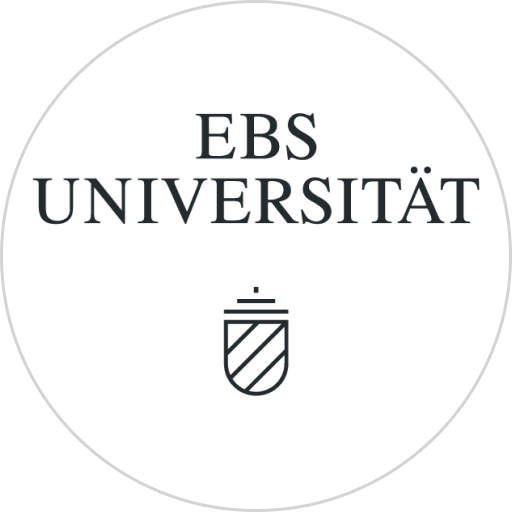A comprehensive guide to
 Study in Germany
Study in Germany
Learn about universities, cost of study, scholarships, admission process & more.
Germany is an acclaimed global higher education hub known for its work-integrated learning, highly valued degrees, welcoming environment, and vibrant lifestyle.
60 +
Partner Institutions
953 +
Programs
Why study in Germany
A colourful, cosmopolitan and diverse country with a practically oriented education system
Lower Tuition Costs

Compared to several other countries, higher studies in Germany are quite affordable, making it a preferred study-abroad destination.
Multiple Degree Courses

The set of courses at most German universities is expanding rapidly, leading to the emergence of newer fields.
Globally Acclaimed Study Programs

German institutions offer programs that are contemporary in terms of their structure & modes of delivery.
Exposure to a New Language

German is a widely spoken language, and learning it greatly improves one's prospects of getting employed by numerous companies globally.
Vibrant Lifestyle

Germany is a culturally diversified place with a welcoming community. It is also highly popular for its outdoor activities.
A Safe Country

While being considered an ideal study destination, Germany is also known as one of the safest countries for international students.
Study Intakes in Germany
German academic institutions are popular for their research programs and STEM courses. These programs accept applications majorly via two intakes: Winter and Summer. Each intake is popular for different reasons, such as:
| Intake | Program Availability | Application Deadline | Duration |
|---|---|---|---|
| Winter Semester | Most programs with a particular focus on business, economics, and social sciences. | June / July | September / October to February / March |
| Summer Semester | Most programs are available during summer, especially in fields like engineering, natural sciences, and humanities. | December / January | March / April to July / August |
Study Levels and disciplines
Types of Courses in Germany

Undergraduate Programs
Foundation program (6 months – 1 year)| Bachelor’s Degree (3-4 years)

Postgraduate Programs
Pre masters & Master’s Degree (2 years)
Explore universities & colleges
Top Universities in Germany for Indian Students

Global University Systems (GUS) - Gisma University of Applied Sciences - Berlin Campus
Berlin, Germany • 46 Programmes
Tuition Fee : EUR 13125 - 13125 / year

SRH Universities - Hamburg Campus
Hamburg, Germany • 15 Programmes
Tuition Fee : EUR 9000 - 9800 / year

Fresenius University of Applied Sciences - Heidelberg Campus
Baden-Wurttemberg, Germany • 1 Programmes

International School of Management - Stuttgart Campus
Baden-Wurttemberg, Germany • 4 Programmes
Tuition Fee : EUR 11400 - 11400 / year

SRH Universities - Cologne Campus
North Rhine-Westphalia, Germany • 6 Programmes
Tuition Fee : EUR 9000 - 9800 / year
Enquire Now
Eligibility Requirements
Academic Transcripts
IELTS/TOEFL Scores
Letters of Recommendation
Statement of Purpose
Work Experience Certificate
Valid Passport and Visa
CV/Resume
Application Process to Study in Germany


Research and Shortlist Universities
Firstly, shortlist the best universities and programs based on accreditation, ranking, location, tuition fees and career prospects.

Check Eligibility
Next step is to check eligibility, such as academic qualification, English language proficiency, etc

Prepare Documents
After checking eligibility, collect the required documents such as academic transcripts, English language proficiency test scores, LOR, SOP, etc.

Apply for Admission
Thereafter, apply for the program online with the assistance of a professional study abroad expert. Simultaneously apply for APS if it’s a mandatory requirement

Pay Tuition Fee
After that, you will receive an offer letter. Then you need to pay the tuition fee to confirm your seat.

Open Blocked Account
Once the tuition fee is paid, open the blocked account either in Fintiba or Expatrio and fund it with Euro 11,904 for the living expenses.

Apply for a Student Visa
Lastly, apply for the German student visa.
Enquire Now
Not sure what you are looking for? Fill in the details to get a call-back.
Cost of studying in Germany
Tuition Fee
Public universities in Germany typically do not charge tuition fees for undergraduate programs, except for a nominal administrative fee of around €150 to €350 per semester. However, some states may have introduced tuition fees for non-EU/EEA students at the master's level. The fees outlined below are per-year tuition fee estimates for most academic institutes in Germany. They do not include additional fees for equipment, learning resources, etc. as levied by some colleges & universities
EUR5,000 – 21,000
Bachelor’s Degree
EUR6,000 – 32,000
Master’s Degree

Scholarships and Financial Aid
Universities and Colleges in Germany offer scholarships, grants, and bursaries to help international students bag the best of educational opportunities in Germany.
| Name of University | Scholarship Name | Award Value |
|---|---|---|
| Lancaster University | Foundation Year Early Acceptance Scholarship | €2,000 |
| International School of Management | Early Bird Discount | €1500 |
Study Visa for Germany
To study in Germany, international students must obtain a study visa. The study visa application process involves providing proof of acceptance to a German university, sufficient financial resources, and language proficiency. The cost of applying for a study visa in Germany varies depending on your nationality and the specific visa type. There are two types of study visas:
| Study Visa Type | Duration | Purpose | Details |
|---|---|---|---|
| Language Course Visa (Visa for Language Learning) | 3 months to 1 year. | For students who want to attend a language course in Germany. | Allows you to stay in Germany while you complete the application process. |
| Student Applicant Visa (Visum Zur Studienbewerbung) | 3 to 6 months but can be extended if necessary | This is for students who are trying to find the right program in Germany or who still haven’t received the confirmation letter from their University. | This type of visa is issued to students who have not yet been officially admitted to enrol in studies as they need to comply with other admission requirements. |
| German Student Visa (Visum Zur Studienzwecken) | Duration of the program (usually 1-2 years) | For students who have been accepted to a German institution | This visa allows students to purse their chosen course and work part-time. |
Costs of living in Germany
Living Expenses in Germany
Students planning to study in Germany must understand the factors that influence living costs there. It is important to save for basic daily necessities such as food, phone bills, internet, electricity, travel and unexpected costs. The table below provides the approximate monthly cost of living for an international student in Germany:
| Expenses Category | Average Monthly Cost (Approx. EUR) | Average Monthly Cost (Approx. INR) |
|---|---|---|
| Accommodation (shared apartments) | 200 - 400 | 19,380 – 38,760 |
| Travel | 30 – 50 | 2,907 – 4,845 |
| Food | 50 – 120 | 4,845 – 11,628 |
| Internet | 20 – 40 | 1,938 – 3,876 |
| Utilities (Electricity, cooling, water, heating, garbage) | 150 – 300 | 14,535 – 29,070 |
Job Prospects after Studying in Germany
Germany offers excellent job opportunities for international students, especially in fields like engineering, technology, and healthcare. There are two types of Stay Back Options for International Students: Job Seeker Visa and EU Blue Card.
Here are some popular job sectors for international students in Germany:
| Employment Sector | Job Role |
|---|---|
| Technology and IT | Software Developer, Data Scientist, Cybersecurity Analyst, Cloud Architect |
| Engineering | Mechanical Engineer, Electrical Engineer, Civil Engineer, Automotive Engineer |
| Healthcare | Doctor, Nurse, Pharmacist, Medical Technologist |
| Business and Economics | Accountant, Financial Analyst, Marketing Manager, Management Consultant |
| Automotive | Automotive Engineer, Automotive Designer, Automotive Manufacturing Specialist |
| Research | Scientist, Researcher, Academic |
| Renewable Energy | Solar Engineer, Wind Energy Technician, Hydropower Specialist |
| Tourism | Hotel Manager, Tour Guide, Event Planner, Travel Agent |
| Education | English Teacher, Language Instructor, Educational Assistant |
Work Opportunities
Part-Time Working Opportunities
International and Indian students can work on campus part-time, either 120 full days or 240 half days per year. Only the days when actual work is performed are counted, except holidays, public holidays, and sick days.
Post Study Work Visa
Students who pick up jobs from career fairs or job shops immediately on course completion, meeting the salary threshold, and having a job contract of a minimum of 6 months, can apply for the EU Blue Card straight away. Students who do not pick a job from the campus are allowed to stay back on a job seeker visa for 18 months. However, the moment they pick a job, they can apply for a work permit or an EU Blue card.
Study in Germany - FAQ
The cost of studying in Germany across private universities can range from 10,000 euros/year to 20,000 euros/year.
Popular English Language Proficiency Exams
Blogs and Articles
Curated content to keep you updated on the latest education trends, news and more.
Top Public Universities in Germany
Updated on • Mar 26,2025 04:33 PM IST • Germany
Updated on • Mar 20,2025 10:19 AM IST • Germany
Fastest Growing Job Sectors in Germany in 2025
Updated on • May 20,2025 05:25 PM IST • Germany
Updated on • Feb 21,2025 11:53 AM IST • Germany
Updated on • Feb 04,2025 12:29 PM IST • Germany
Updated on • May 22,2025 11:11 AM IST • Study in Canada
Job Opportunities after Masters in Germany
Updated on • Dec 19,2024 05:00 PM IST • Germany
Updated on • May 22,2025 04:36 PM IST • Study in Germany
Letter of Motivation for Germany
Updated on • Dec 07,2024 05:11 PM IST • Germany
Universities of Applied Sciences in Germany
Updated on • Nov 27,2024 05:22 PM IST • Germany
Student Accommodation in Germany
Updated on • Sep 14,2024 01:59 PM IST • Germany
Best Cities in Germany for Indian Students
Updated on • Sep 07,2024 05:51 PM IST • Germany
Transportation for Students in Germany
Updated on • Sep 05,2024 11:37 AM IST • Germany
Updated on • Nov 27,2024 05:34 PM IST • Study in Germany
Health Insurance in Germany for International Students
Updated on • Dec 06,2024 04:05 PM IST • Study in Germany
Scholarships in Germany for International Students
Updated on • Dec 06,2024 03:59 PM IST • Study in Germany
Master's in Mechanical Engineering in Germany: Programs, Eligibility, & More
Updated on • Mar 18,2024 11:26 AM IST • Germany
Intakes in Germany for International Students
Updated on • Mar 18,2024 04:48 PM IST • Germany
Master's in Management (MIM) in Germany
Updated on • Mar 02,2024 12:10 PM IST • Germany
Updated on • Mar 01,2024 01:02 PM IST • Germany
Not sure what you qualify for?
Take our quick eligibility check and find out all the available courses for you.























